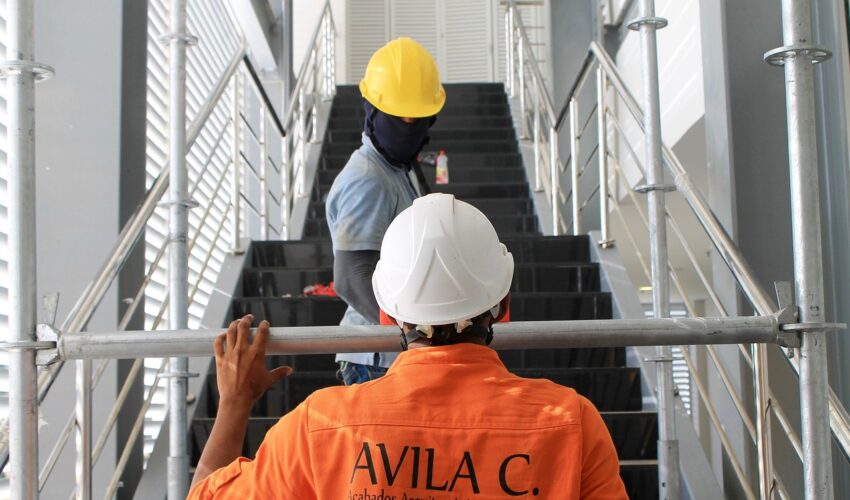The Grenfell Tower fire tragedy in 2017 shone a harsh light on the dangers of unsafe cladding materials used on high-rise buildings. The Building Safety Act 2022 (BSA) directly addresses this issue, introducing a new legal framework to ensure the safety of residents in buildings with problematic cladding. Blackstone Solicitors, a leading law firm serving clients across England and Wales, explores the BSA’s focus on cladding and its implications for building owners and residents. In this article, Building Safety Act 2022 Cladding, we take a look at the process and mechanism involved.
Free Initial Telephone Discussion
For a free initial discussion with a member of our New Enquiries Team, get in touch with us today. We are experienced in dealing with all the legal aspects of the building safety act 2022, and once instructed, we will review your situation and discuss the options open to you in a clear and approachable manner. Early expert legal assistance can help ensure you are on the best possible footing from the start and also avoid the stress of dealing with these issues on your own. Simply call us on 0345 901 0445 or click here to make a free enquiry and a member of the team will get back to you.
The Cladding Crisis and its Aftermath
The Grenfell Tower fire tragically exposed the dangers of certain types of cladding materials, which can contribute to the rapid spread of fire. Following this event, a national conversation emerged regarding the remediation of unsafe cladding on high-rise buildings.
The BSA’s Focus on Cladding Remediation
The BSA takes a multi-pronged approach to address the issue of unsafe cladding:
- Identifying Affected Buildings: The act defines “relevant buildings” – typically high-rise residential buildings above a certain height threshold – that require assessment for cladding risks.
- Building Assessments: The BSA mandates building assessments for relevant buildings to identify the presence and type of cladding and determine any associated fire safety risks.
- Cladding Remediation: Building owners are responsible for taking action to remediate unsafe cladding on relevant buildings. This may involve complete removal and replacement or other fire safety mitigation measures.
- Financial Responsibility: The BSA introduces a framework for determining how the costs of cladding remediation will be financed. The act offers some protections for qualifying leaseholders, ensuring they are not burdened with the full cost of remediation.
Types of Cladding Considered Unsafe
The BSA doesn’t explicitly list specific cladding materials as unsafe. However, certain types of Aluminium Composite Material (ACM) cladding with a polyethylene core are widely considered to pose a fire safety risk. These cladding systems often fail fire safety tests and can contribute to the rapid spread of flames.
The BSA and Cladding Remediation Costs
One of the most significant aspects of the BSA concerns the financial responsibility for cladding remediation. The act introduces a “polluter pays” principle, aiming to ensure those responsible for the use of unsafe cladding bear the financial burden of its removal and replacement. However, the act also recognizes the potential hardship this could place on some building owners and offers protections for qualifying leaseholders:
- Qualifying Leaseholders: The BSA offers protection for leaseholders in relevant buildings who meet specific criteria, such as holding a long lease and paying rent below a certain threshold. These qualifying leaseholders are generally shielded from the costs of cladding remediation.
- Developer Costs: The BSA seeks to hold developers and building owners who were responsible for installing the unsafe cladding accountable for remediation costs.
- Building Safety Levy: The act establishes a Building Safety Levy on certain high-value property purchases to contribute to a fund supporting cladding remediation for buildings where the responsible party cannot be identified or afford the costs.
Important Note: Determining who is financially responsible for cladding remediation can be a complex issue. Blackstone Solicitors can assist you in navigating the legal framework and understanding your rights and obligations regarding cladding costs under the BSA.
The Benefits of the BSA for Cladding Remediation
The BSA, while introducing new regulations and potential financial burdens, ultimately aims to achieve a safer built environment:
- Enhanced Fire Safety: By mandating cladding assessments and remediation works, the BSA aims to significantly reduce the risk of fires spreading due to unsafe cladding.
- Fairness and Accountability: The “polluter pays” principle holds those responsible for using unsafe cladding accountable for remediation costs.
- Protection for Leaseholders: Qualifying leaseholders are generally protected from the financial burden of cladding remediation under the BSA.
Blackstone Solicitors: Your Partner in Building Safety
Blackstone Solicitors boasts a team of experienced property law specialists adept at handling building safety issues. We can assist building owners and residents with:
- Understanding the BSA’s implications for cladding remediation.
- Determining if your building falls under the definition of a “relevant building.”
- Navigating the building assessment process for cladding risks.
- Addressing legal concerns regarding financial responsibility for cladding remediation.
- Ensuring compliance with the new building safety regulations.
We are committed to empowering building owners and residents with the knowledge and resources they need to ensure the safety of their homes.
Conclusion
The Building Safety Act 2022 represents a crucial step towards addressing the issue of unsafe cladding in high-rise buildings. Understanding the BSA’s focus on cladding and its implications for financial responsibility is essential for all stakeholders involved.
How we can help
We have a proven track record of helping clients deal with the legal aspects of the building safety act 2022. We will guide you through the process and ensure all checks are carried out swiftly and efficiently and we firmly believe that with the right solicitors by your side, the entire process will seem more manageable and far less daunting.
How to Contact Our Commercial Property Solicitors
It is important for you to be well informed about the issues and possible implications of the building safety act 2022. However, expert legal support is crucial in terms of ensuring a positive outcome to your case.
To speak to our Commercial Property solicitors today, simply call us on 0345 901 0445, or click here to make a free enquiry. We are well known across the country and can assist wherever you are based. We also have offices based in Cheshire and London.
Disclaimer: This article provides general information only and does not constitute legal advice on any individual circumstances.





